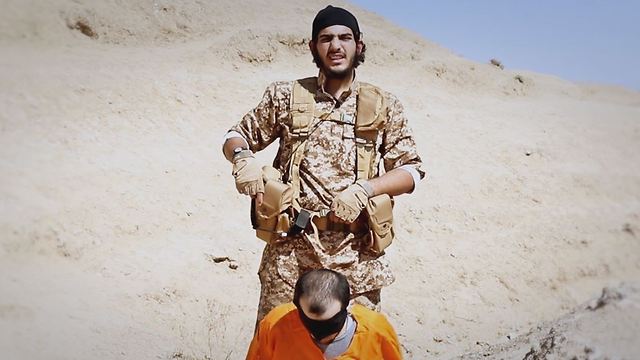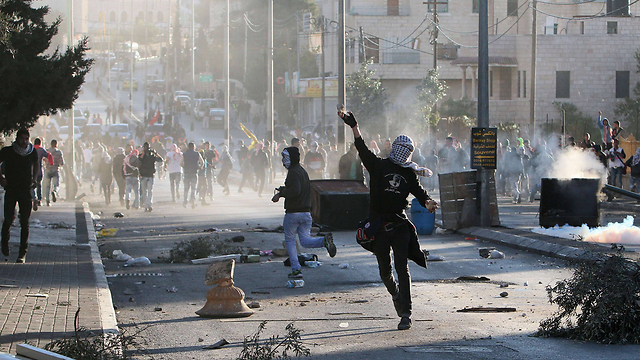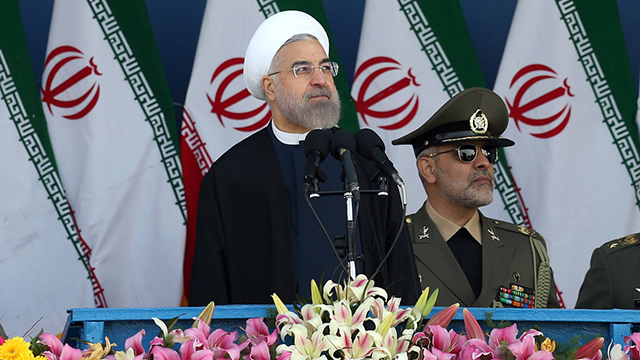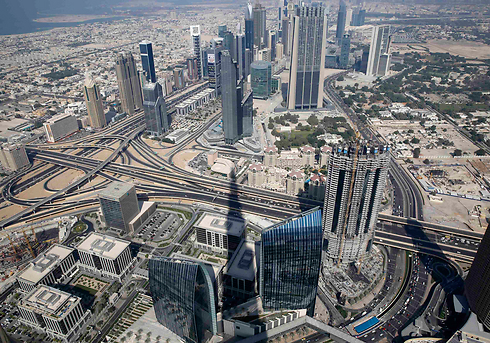
Massive survey of Arab youths published
Survey of Arab millennials provides interesting picture of changing attitudes of young adults in the Arab world. It helps explain how Arab millennials view themselves in the world, view their countries, and which issues are important to them.
A massive survey of millennial adults in the Arab world was carried out recently in an attempt to understand burgeoning trends in the Arab mindset.
The survey was conducted by the Asda'a Burson-Marsteller institute, and was based on face-to-face interviews with 3,500 young Arab adults between the ages of 18-24 from 16 Arab countries.
It showed a significant decrease in millennial support for ISIS, and shows that although the Israeli-Palestinian conflict worries them, it's far from being considered the most pressing issue in the Middle East.
The Israeli-Palestinian conflict seems to be just the seventh most pressing issue for millennials in the region, after the rise of ISIS, terrorism, unemployment, political instability, the cost of living, and the absence of strong political leadership in the Arab world.
According to the survey, only 13% of young Arab adults could imagine themselves supporting ISIS. 77% said that ISIS worries them, and 76% believe that it will fail to establish an Islamic Caliphate. Regarding what they believe drives people to join ISIS, 25% said unemployment, 13% said the Israeli-Palestinian conflict, and 25% said that they have no idea why someone would support the organization.
My new friend Iran
The young adults also worry about the deep influence religion has on their societies, about the internal conflict within Islam, and how the conflict affects their current situation. 52% of respondents stated that they believed religion plays too central of a role in the Middle East.
The rate of people giving these answers is higher in the Gulf countries (62%) than in the Levant (44%) or in North Africa (47%).
Furthermore, 47% say that relations between Sunnis and Shiites have deteriorated in light of the Arab Spring, and 72% of respondents said that the deep rift between the two sects is one of the primary reasons for instability in the region.
Yet another surprising trend seen in the survey is in the improved image Iran has amongst Arab young adults. 13% of respondents viewed Iran as their country's primary ally, and it took fifth place overall in regards to which country Arab millennials view as an ally. This is different than was the case in previous years, when Iran didn't even make it onto the list. Overall, Saudi Arabia was ranked in first place (31%), UAE second (28%), USA third (25%) and Egypt fourth (15%).
The countries where people were most likely to support Iran are, unsurprisingly, Iraq (51%) and Lebanon (49%). Iraq is majority Shiite and Hezbollah – the strongest military and political force in Lebanon - receives much of its support from Iran. Surprisingly, 43% of respondents in the Sunni-dominated Palestinian Authority also supported Iran.
Regarding the nuclear agreement with Iran, 45% of Arab millennials support the agreement, while only 39% expressed disagreement with the deal. Although Gulf countries were amongst the most vocal critics of the deal, respondents from these countries actually were the most supportive of the deal out of the three sub-regions in the survey (57%).
When discussing the United States, 63% of Arab young adults view the US as a friend, while 32% view the country as an enemy state. 85% view the US favorably in the Gulf, whereas only 33% of people in the Levant hold a positive view of the country. Meanwhile, 66% of North Africans have a favorable view of America.
However, a vast majority of Iraqis view the US as an enemy state (93%), as do those in the Palestinian Authority (81%). 57% of Lebanese also view the US in a hostile manner.
The dream: Tweeting in Dubai
Five years after the start of the "Arab Spring," only 36% of young people in the Arab world believe that the situation in Arab countries has improved - a drop from 72% in 2012. The only country which feels differently is Egypt.
Another disappointing statistic for anyone who had hope that the "Arab Spring" will bring about change for the better is the fact that most Arab millennials (53%) believe it's more important to have stability than democracy. However, 67% responded by saying that Arab leaders must work harder to improve the human rights situation and privacy rights of citizens in Arab countries. 67% also responded that Arab leaders need to do more to promote the rights of women. There is almost no difference in the percentage of men and the percentage of women who support more women's rights.
The survey also reveals a deep worry about the economic situation in the Arab region. 56% of millennials in the Palestinian Authority, 56% in Tunisia, 47% in Lebanon, 49% in Iraq, 71% in Lebanon, and 82% in Yemen believe that there is little to no possibility of employment where they live.
However, it seems that Arab millennials are most jealous of their counterparts in the UAE, the country which - according to the survey - young Arabs most want to live in. The next two preferences are the US and Germany, followed by Saudi Arabia, Canada, and France. The UAE is the country that Arab millennials want their country to emulate the most. The two biggest reasons cited by the survey for the desire to live in the UAE is due to its security and due to employment opportunities.
The survey also sheds light on the lifestyles of Arab millennials in the digital age. 32% get their daily news from the internet, while 29% get it from TV. Meanwhile, only 7% get their news via physical newspapers.
Amongst the overall Arab population, TV is still the leading medium, with 63% of Arabs receiving the news in this manner, while 45% of Arabs use news websites. Radio comes in last with only 17% of respondents in the Arab world using this medium as their primary news source.
Arab millennials' favorite apps are also not outside the global norm, with 62% using WhatsApp every day, 55% using Facebook, 33% using YouTube, and 28% using both Instagram and Twitter every day.














